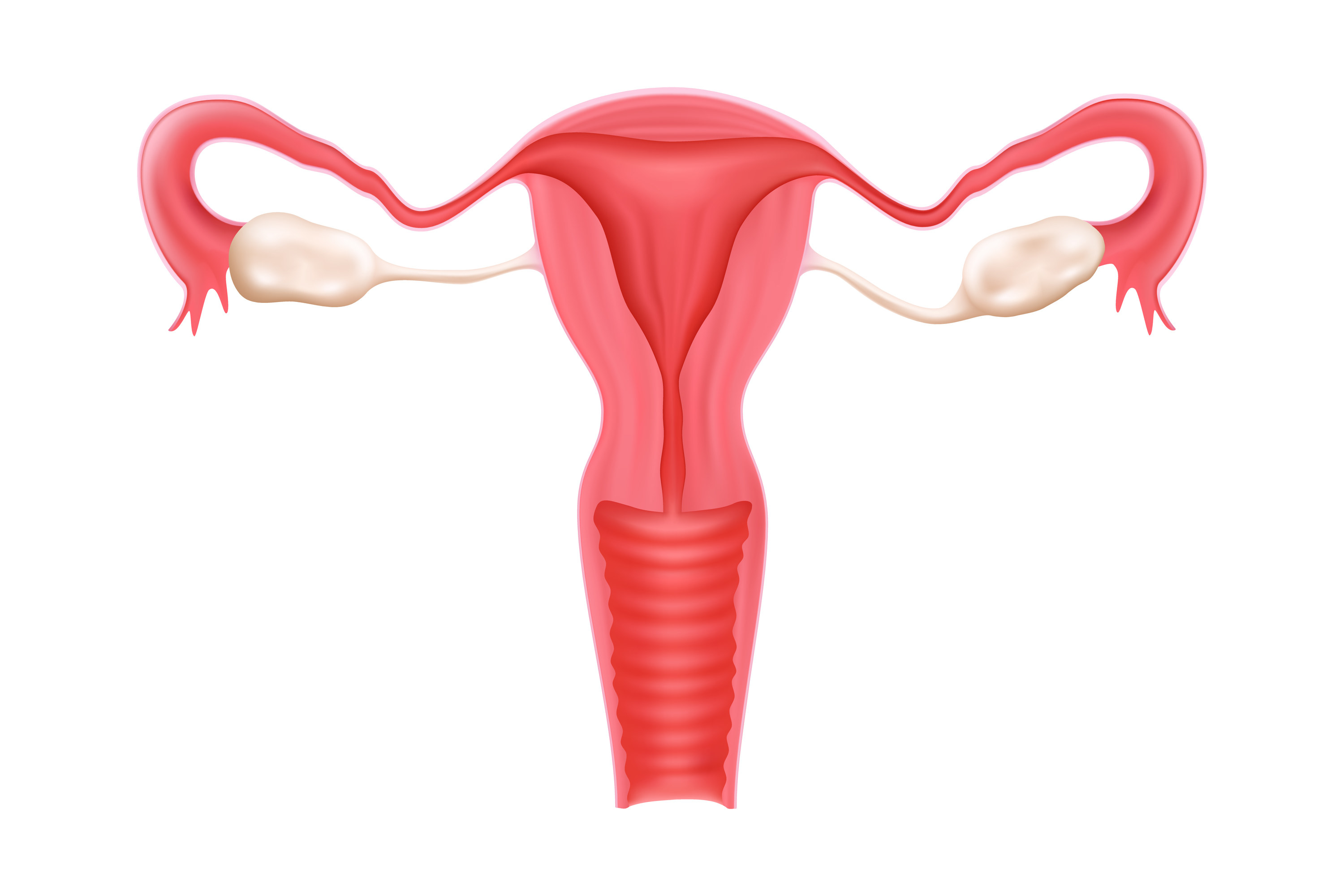At this point, I've accepted that the health class I took in high school was nowhere near enough information. Every day, I log onto TikTok or Twitter and learn something new about my own body.

Most recently, urogynecologist and female pelvic reconstructive surgeon Dr. Jocelyn J. Fitzgerald caught my attention when she shared, "To all the women coming to my office understandably enraged that nobody told them their vaginas could fall out from having babies: I am so sorry."
To all of the women coming to my office understandably enraged that nobody told them their vaginas could fall out from having babies: I am so sorry that for so long the patriarchy was scared of what you would do with that information.
Yes. Vaginas. Falling out. Of your body.
Now, to be fair to myself, I knew vaginal prolapse — which refers to when the stretching or weakening of the pelvic floor, tissues, and ligaments result in a sag or drop in the top of the vagina — was possible. Sometimes, this results in a droop that remains inside the vaginal canal, and other times, the top of your vagina can fall until it's outside of the body. What I did not know, however, was how common this is.

Statistics seem to differ depending on the study you read, but researchers tend to agree that about 1 in 3 people with vaginas will experience vaginal prolapse at some point in their lives, and 50% of those who give birth vaginally will prolapse.

After the initial shock she gave the timeline, Dr. Fitzgerald created a full thread explaining the ins and outs of vaginal prolapse, saying, "Vaginal prolapse is described in five stages; stage 0 is no prolapse at all, and stage 4 is the entire vagina turned inside out. Most women don't really feel prolapse until it is stage 2 outside of the vaginal opening, or hymen."
As promised, a tweetorial on pelvic organ and vaginal prolapse!
According to health aid Elara Care, the first stage of prolapse is marked by a person's uterus drooping from its normal placement in the body and falling into the upper half of the vagina. During stage 2, the uterus descends nearly to the opening of the vagina before slightly protruding out at stage 3. Finally, during stage 4, the uterus hangs out of the vaginal canal.
When prolapse causes symptoms, a person may experience bladder infections, backache, vaginal bleeding, and difficulty with inserting tampons, having sex, or pooping. If someone is experiencing stage 4 prolapse, the protrusion may make it difficult to walk.
"So, what causes prolapse?" Dr. Fitzgerald posed. "Far and away, the biggest risk factor is having a vaginal delivery, particularly an operative one with vacuum or forceps. However! Patients with no pregnancies at all can still have prolapse."
"Other causes include: connective tissue disorders like EDS, pelvic floor pressure from obesity, chronic constipation, chronic cough, and aging in general. Having a hysterectomy also likely increases risk."
To learn more about vaginal prolapse and treatment, I reached out to Dr. Fitzgerald, who told BuzzFeed, "Almost every patient I see tells me how much they wished they knew [vaginal prolapse] could happen to them. ... I think we do a terrible job in general of educating women about their bodies, particularly around aging and vaginas. There is so much shame and taboo around the subject that so many women, even if they experience prolapse, keep it to themselves out of embarrassment."

This sentiment can be seen reflected throughout replies to her thread, where one mother said that the possibility of prolapse during each of her pregnancies was never brought up in either prenatal or postpartum care...
@jfitzgeraldMD Can confirm this is not taught in high school health class. It also was not mentioned during prenatal or postpartum care for any of my pregnancies. Pelvic Floor Rehab should be standard care postpartum.
...and another user wished they knew more about recovery and treatment options before giving birth.
@jfitzgeraldMD I wish I know before giving birth, I should have been more careful, rest more after birth to help it recover, its too late now, things worse because lack of knowledge😭
Speaking of which, Dr. Fitzgerald pointed out that when prolapse is in its early stages, most patients do not require treatment. "Some patients can live with a prolapse without any problems," she said. "If prolapse doesn't bother you, you don't have to do anything about it except in the most extreme of cases. But if it is bothersome, it can be treated with pelvic floor physical therapy...a pessary, which is a rubber ring that goes in the vagina and can hold the prolapse in place, or surgery, which comes in many different approaches."
"Just know that this is a common condition and there are treatments! If something doesn't feel right or seem right, seek out a second or even third opinion if you need it."
When it comes to furthering education for women and their bodies, Dr. Fitzgerald thinks social media and everyone speaking openly about the ways pregnancy can change a person's body is key — even if others are resistant to or uncomfortable with the idea.

When asked how she would respond to those who claim knowing more about their body may dissuade people from becoming pregnant, Dr. Fitzgerald said, "I would ask them what they are so afraid of. It isn't any of our business what women do with factual knowledge about their health. We educate people about all kinds of things every day that might put their health at risk, but ultimately it is up to each individual person to decide what they do with that information and what risks they are willing to take."
We must ALWAYS always be on the side of trusting women with the full spectrum of information—good, bad, ugly—and allowing them to make informed choices. Life is messy with a lot of pros and cons to everything. But ignorance is not it.
If you'd like to learn more about pelvic floor health, you can follow Dr. Fitzgerald on Twitter.
And if you ever have questions about your own body, schedule an appointment with a doctor.
